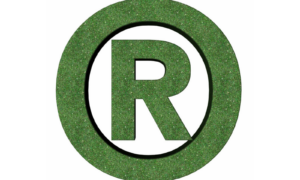Cannabis Scams 3.0

Even the Better Business Bureau has an alert out on dispensary scams
In an era of Theranos, Fyre Fest, FTX and WeWork, cannabis scams, frauds, and scandals probably pale in comparison. However, cannabis scams (and their evolution) are still worth noting, spotting, and avoiding at all costs. I’ve written about cannabis scams in the past (see here), and it’s one of my favorite topics given the still-emerging nature of the industry (plus, federal illegality attracts a lot of personalities and buyers should definitely beware). And since the cannabis economy is getting incredibly lean, scams are back on the rise. Even the Better Business Bureau has an alert out on dispensary scams. So, this is my update on cannabis scams 3.0.
Cannabis pump and dumps remain alive and well
In a pump and dump, fraudsters increase the demand and trading volume in a stock, and the new investors create a sharp rise in its price. Once the stock rises, the scammer group then sells its position at the peak to make a large short-term profit. So we’re talking about publicly traded companies here.
We have more publicly traded cannabis companies than ever thanks to continued state-by-state legalization and the 2018 Farm Bill. Back in 2016, I warned about pump and dumps with OTC-traded cannabis companies. Looks like not much has changed for some of these bad actors. Most recently, in March of this year, American Premium Water Corp. (a cannabis (technically CBD) water company) came under fire with the Department of Justice for allegations of a $10 million classic pump and dump. And don’t forget about Cannabiz Mobile where the company’s former, secret, owner just pled guilty to one count of securities fraud for a cannabis pump and dump and is now facing up to 20 years in prison and a $5 million fine.
Spotting a pump and dump in cannabis means looking for: a) drastic upticks in stock price on the back of b) highly concentrated stock promotion with c) no real commercial reason to justify the rise. This is the “pumping”, and in cannabis elevated social media interactions and unsolicited promotional emails from thinly traded cannabis companies may also be a tell. You may also see unregistered, unlicensed, anonymous “advisors” come out of nowhere to promote the stock.
Burner licenses and illegal operations
I recently wrote about the scourge of burner licenses plaguing California’s cannabis industry. And I have no doubt that California cannabis product is winding up in a multitude of states, not just New York. Burner licenses are symptomatic of another grand cannabis scam: straight up illegal operations. Investors and buyers need to be so, so careful when evaluating state-licensed cannabis companies. Due diligence is specialized and obviously key. And even if you do your homework, you should ensure that you have enough control rights to keep an eye on day-to-day management.
A couple of times now, I’ve had clients come to me saying that revenue doesn’t add up for the amount of product that apparently went out the door. Or track-and-trace records don’t make sense compared to inventory that’s left the building. If you’re seeing these issues in your cannabis business operations, someone may be illegally diverting product out the back door (and likely not paying the corresponding taxes). That’s a huge no no, which can land the entire operation in hot water with the state and Feds.
Cannabis crowdfunding
Some years back, the SEC released new crowdfunding rules designed to let the small fry swim with the sharks. Today, companies can solicit $2,500 from anyone (and more in many cases) in exchange for an equity stake in their business. Companies can raise up to $1,235,000 (adjusted up from $1 million due to inflation) annually through these offerings, which fall under Title III of the 2012 JOBS Act. As we have written before, the SEC does not care whether your business is a cannabis business, so long as you follow its offerings rules.
Though the SEC’s rules for crowdfunding advertising are incredibly strict, be mindful that the emerging nature of cannabis breeds some bad behavior that may fall through the cracks. Take, for recent example, TruCrowd Inc. That crowdfunding platform hosted two crowdsource offerings for cannabis and hemp companies, which sold up to $2 million of unregistered securities. The funds were then diverted for personal use by the scammers.
Cannabis and crypto
For some reason, certain cannabis companies and investors believe that crypto is the way for cannabis companies to solve their inability to access financial institutions (guess they’ve never read the 2014 FinCEN Guidelines?). In any event, no, crypto cannot and will not answer the issue of federal illegality when it comes to banking. In fact, some states have even banned its use altogether when it comes to cannabis commerce because it can defeat the purpose of traceability and uncovering illegal conduct altogether. (See here for a recent account in Washington State regarding illegal sales of cannabis and the use of crypto to assist.)
If you’re seeing investment offers from cannabis companies claiming they can solve their banking woes with crypto, definitely think twice. One of the bigger scandals I’m watching is what’s happening with JuicyFields, which appears to be a ponzi, crypto, and crowdfunding cannabis scheme all wrapped into one. You can’t make this stuff up.
Bank fraud
Somewhere up there with crypto cannabis frauds is bank fraud. Cannabis businesses are so desperate for financial relief and ease of business, that they’ll try their hands at a lot of nonsense, including bank fraud, and including defrauding credit card companies. The credit card-related fraud is nothing new where cannabis companies (and even ancillary cannabis companies) will lie to the credit card companies about their line of business, or they’ll even use third party management or consulting companies to access some credit.
Back in 2021, the former CEO of Eaze pled guilty to “one count of conspiracy to commit bank fraud in connection with an alleged scheme to deceive banks into processing more than $100 million worth of credit and debit payments for marijuana purchases.” And don’t forget your run-of-the-mill bust-out schemes either. The credit card companies always eventually figure out this low level scheming, which is why, one day, you may be able to pay your dispensary with a credit card and the next day it’s back to cash.
The other interesting kind of fraud–at least related to financial institutions–is that, as a cannabis business, you may be solicited for banking-like services in order to make your operational life easier. I wrote about this back in 2018, and not much has changed since then. We have no federal changes around cannabis banking after all. Accordinly, cannabis businesses need to be mindful of these roundabout “banking solutions”, and make sure that they’re not getting the slip on what’s actually a fraudulent enterprise designed to steal their money.
Source: Canna Law Blog




































